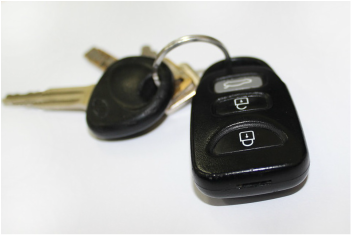So, what does this mean for all those seniors in high school or freshman in college celebrating their transition into adulthood? For starters, they can now vote, enter into an enforceable contract, and join the armed forces. Sounds great, right? Well, like all things in life, there are both pros and cons.
This post is going to focus on two areas of law in which this firm practices and how turning 18 changes an individual’s outlook and rights legally. This is certainly not intended to be an all-encompassing overview, but instead a starting point of conversations for parents with their children and/or consideration for those of you making the jump into adulthood.
First, we’ll review the impact that your 18th birthday has when it comes to entering into contracts. In most states, a minor (anyone under the age of 18) is deemed incapable of entering into an enforceable contract through a legal doctrine known as incapacity (this doctrine also covers the mentally ill and very intoxicated persons in most states). As a minor, an individual receives blanket protection, the strongest available defense against the formation of a valid contract. That contract is deemed voidable at the discretion of the minor (NOT THE OTHER PARTY), such that the incapacitated party (the minor) could dis-affirm the contract. If they elected to dis-affirm the contract, any obligations they had via said contract would be waived.
NOTE: There is a slight exception here for the otherwise lock-solid protection against contract formation afforded to minors. While generally contracts entered into by individuals under the age of 18 are deemed voidable at the minor’s discretion, minors may still be on the hook financially for what are deemed “necessities”. Necessities are essentially those things you require in order to live: food, clothing, housing. For necessities, the minor may still be required to pay the fair market value of the product, but that’s not necessarily the contract price agreed to originally.
Once a minor crosses the threshold into adulthood, the court system will hold him or her responsible for the promises he or she made when they entered into the contract. As an adult, you will be legally responsible for paying the contract price called for in the agreement, and if you don’t, you can (and likely will) be sued. No longer do you carry the shield of youth, and those obligations you incur via contract will be legally enforceable.
The second area of discussion is the always hot-topic of underage drinking. While you may be deemed an adult in the eyes of the legal system in Pennsylvania, you are still barred from buying, drinking, possessing, or transporting any type of alcoholic beverage (beer, wine, liquor, etc.) until you reach the age of twenty-one (21). It’s an oft-asked question: “Why can I go to war for my country at 18 years old but not have a beer?” This is an easy answer: because the law says so!
Even at the ages of 18, 19, or 20, if you are found buying, drinking, or in possession of alcohol, an officer of the law absolutely has authority to cite you for underage drinking. You’re then looking at fines and potentially jail time. Not only that, you will most likely lose your right to operate a vehicle for 90 days and this transgression will appear on your criminal record.
Parents should also be wary in this arena, as those parents who allow individuals under the age of 21 to drink in their home may be liable both civilly and criminally.
Make no doubt about it, every birthday is a special one, including one’s 18th. But it is important to be aware that the game does indeed change one you’re deemed an adult.
If any of the above legal issues apply to you or your child, the legal team at Howland Hess O’Connell is available to assist you today. A free consultation can be arranged by calling (215)-947-6240. Also feel free to contact us online to schedule a meeting today.
Legal Disclaimer: The contents of this website are intended solely for informational purposes. They neither constitute nor imply an official legal opinion on behalf of Howland, Hess, Guinan, Torpey, Cassidy and O’Connell nor do they establish an attorney-client relationship of any kind. Howland Hess O’Connell encourages all readers to seek and consult professional counsel before acting upon the information contained on this site.


 RSS Feed
RSS Feed